detail profile didier sauvegrain
Peran Yang Di Mainkan Didier Sauvegrain
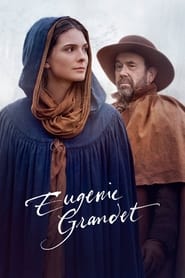 Felix Grandet reigns supreme in his...
Felix Grandet reigns supreme in his...Eugénie Grandet 2021
Felix Grandet reigns supreme in his modest house in Saumur where his wife and daughter Eugenie lead a distraction-free existence. Extremely avaricious, he does not take a favorable view of the beautiful parties who rush to ask for his daughter's hand. Nothing should damage the colossal fortune he hides from everyone. The sudden arrival of Grandet's nephew, an orphaned and ruined Parisian dandy, turns the young girl's life upside down.
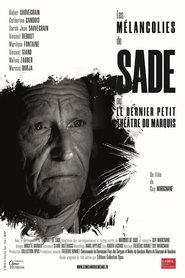 During the last years of his...
During the last years of his...Les mélancolies de Sade 2020
During the last years of his life, the Marquis de Sade was imprisoned. Alone in his wanderings, this man of letters wrote almost every day. We discover a man of exquisite complexity: his painful introspection reveals a man in love, a visionary, but also a fragile and terribly human being... this story flies in the face of presuppositions about Sade.
 After many years of confrontation the...
After many years of confrontation the...The Royal Exchange 2017
After many years of confrontation, the treasures of Spain and France are empty. In 1721, the regent of France draws up an ambitious plan to inaugurate an era of peace and prosperity that will heal the economies of both nations: his intention is to build a solid network of marriage alliances that will involve four children of very different ages who know nothing of betrayals and power games…
 1968 and 1969 in Paris during and after...
1968 and 1969 in Paris during and after...Regular Lovers 2005
1968 and 1969 in Paris: during and after the student and trade union revolt. François is 20, a poet, dodging military service. He takes to the barricades, but won't throw a Molotov cocktail at the police. He smokes opium and talks about revolution with his friend, Antoine, who has an inheritance and a flat where François can stay. François meets Lilie, a sculptor who works at a foundry to support herself. They fall in love. A year passes; François continues to write, talk, smoke, and be with Lilie. Opportunities come to Lilie: what will she and François do?
 When the young detective Paul Nerteaux...
When the young detective Paul Nerteaux...Empire of the Wolves 2005
When the young detective Paul Nerteaux finds the third slashed female corpse of illegal Turkish immigrants, he decides to ask for support to the experienced dark retired detective Jean-Louis Schiffer to chase the serial killer. Together, they infiltrate in the Turkish mafia trying to find the answer to the crimes. Meanwhile, the worker Anna Heymes is being submitted to a brain treatment and has severe headaches and glimpses of memories and visions. When these two parallel events collide, disclose that the Turkish organization "The Wolves" is behind them.
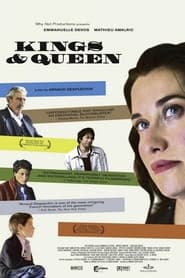 Shortly before her wedding art gallery...
Shortly before her wedding art gallery...Kings & Queen 2004
Shortly before her wedding, art gallery director Nora travels from Paris to Grenoble to visit her preteen son, Elias, who is spending time with her aging professor father, Louis, recently diagnosed with terminal cancer. During her stay, she reaches out to her former lover, Ismaël, a viola player and father figure to Elias who has been committed against his will to a mental hospital. Ismaël, however, has his own problems to sort out.
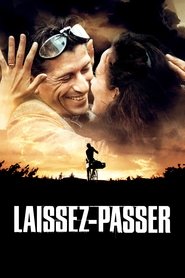 During the Nazi occupation of France...
During the Nazi occupation of France...Safe Conduct 2002
During the Nazi occupation of France as two filmmakers attempt to navigate their careers without compromising their ideals. Facing pressure from the Vichy government, assistant director Jean Devaivre uses his position at the German-controlled studio Continental Films as a cover for his resistance activities, while screenwriter Jean Aurenche uses his wits to keep from being involved in the creation of any collaborationist propaganda.
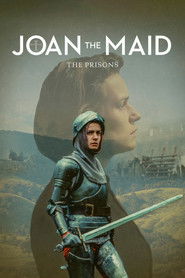 Jeanne dArc has succeeded in lifting...
Jeanne dArc has succeeded in lifting...Joan the Maid II: The Prisons 1994
Jeanne d'Arc has succeeded in lifting the siege on Orléans and Charles VII has been ordained King of France. However, she is injured in her failed attempt to take Paris, weakening her position at court. When she is finally captured and put on trial, she finds both her life and the sanctity of her body at stake.
 Gilbert assigned to incinerate old banknotes...
Gilbert assigned to incinerate old banknotes...Le Beauf 1987
Gilbert, assigned to incinerate old banknotes at the Bank of France, lives with his wife, Gisèle, and his young son, Thomas. A few years earlier, he had formed a rock band with Serge and Gisèle's brother, Marc. The latter, abusing his naivety, make him believe that he has been robbed of a briefcase containing a million dollars and that, because of his fault, Marc is in danger of dying. The objective is to force Gilbert to put his incinerator out of order to facilitate the bank robbery. Gilbert refuses at first, then gives in. But he discovers that he has been cheated. To get revenge, he tells the police the date and time of the robbery.
 Good dope is becoming rare in...
Good dope is becoming rare in...The Syringe 1984
Good dope is becoming rare in the North of Paris. Drugstores are being raided by junkies and gangs are nervous, fighting each others: the 'Viets', the 'Blackies', the 'Arabs', the neo-nazis 'Justiciers' and some mean gays. Vincent (Daniel Auteuil) is the good cop coming from Marseilles where he was a gangster. He's a soft method guy but also kicks assses hard and throw lethal dialog lines when needed. With the precious help of 'l'Arbalète'* (Marisa Berenson**), a tox' prostitute ex-member of Vincent's former gang, he will try to put order in that mess. There's also a violent and racist cop (Marcel Bozzuffi), Algeria veteran with hard methods, whose role could be more than to protect and to serve.
 Philippe Jordan is a policeman prone...
Philippe Jordan is a policeman prone...The Outsider 1983
Philippe Jordan is a policeman prone to advancing the cause of justice by any means necessary. On his agenda is a powerful drug cartel working out of Paris and Marseilles, with a drug lord who is essentially inaccessible -- but not immortal.
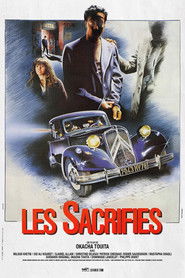 In 1955 a year after the birth...
In 1955 a year after the birth...Les Sacrifiés 1983
In 1955, a year after the birth of the National Liberation Front (FLN), Mahmoud was expelled from Algeria by the colonial authorities who feared his revolutionary speeches. At the age of 27, he arrived in the Algerian slum of Nanterre. Roughly questioned by FLN activists, in disagreement with the Algerian Nationalist Movement (MNA) who wanted to recognize theirs, he was then accepted as the local hairdresser and shoemaker. Subsequently, he became a driver during anti-MNA expeditions. Accepting increasingly dangerous missions, he is imprisoned by the French police and once again undergoes interrogations and special treatment by the police which will definitively undermine his sanity. One day, he no longer recognized his companions, and when joy broke out among the FLN militants, at the announcement of the signing of the Evian Accords, Mahmoud remained alone, frozen in an attitude of refusal, walled in his madness. Algeria has just won its independence.
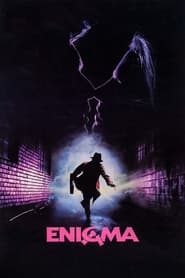 Five highlytrained KGB agents are sent...
Five highlytrained KGB agents are sent...Enigma 1982
Five highly-trained KGB agents are sent to the west to assassinate several Soviet dissidents. In order to stop the diabolical plot, an American agent must infiltrate Soviet intelligence and obtain information from a Russian computer.
 Grgoire Lecomte the unlucky actor anxious...
Grgoire Lecomte the unlucky actor anxious...Umbrella Coup 1980
Grégoire Lecomte, the unlucky actor anxious to find a "real job", goes to take a screen test for a role of a killer, but gets to mafiosi by mistake. He takes their don for a producer, and they mistake him for a hitman with whom they had an appointment. Deluded Lecomte signs contract with them. He is supposed to kill gun dealer Otto Krampe at his birthday party in Saint-Tropez by piercing him with a cap of the umbrella with a built-in syringe with potassium cyanide. Lecomte is not aware that it has to be a real murder.
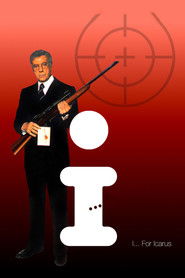 Following the assassination of President Marc...
Following the assassination of President Marc...I... For Icarus 1979
Following the assassination of President Marc Jarry, a member of the investigation committee refuses to sign off on the committee's final findings.
 France 1975 Jean an exiled Spanish Communist...
France 1975 Jean an exiled Spanish Communist...Roads to the South 1978
France, 1975. Jean, an exiled Spanish Communist, is a successful screenwriter who, after a tragic event, struggles with his political commitment, his love for his country, under the boot of General Franco, whose death he and his comrades have waited for years, and his complicated relationship with his son. (A sequel to “The War Is Over,” 1966.)
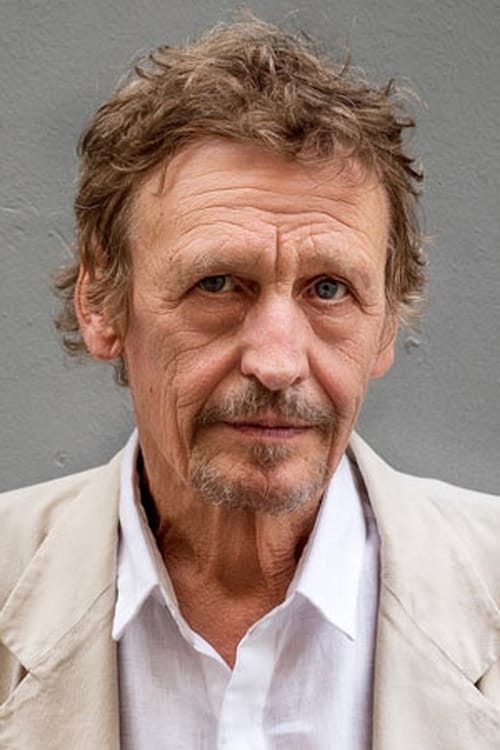
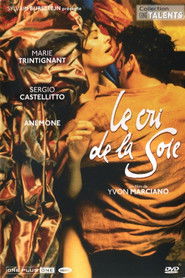 An illiterate seamstress has a powerful...
An illiterate seamstress has a powerful...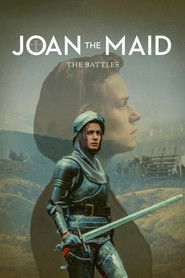 Convinced that only she can lead...
Convinced that only she can lead...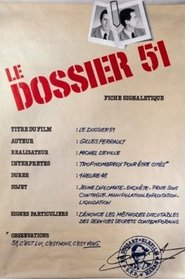 A French diplomat is surveilled by...
A French diplomat is surveilled by...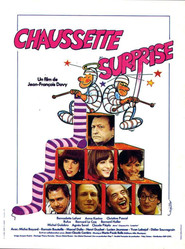 Following a car accident four men...
Following a car accident four men...